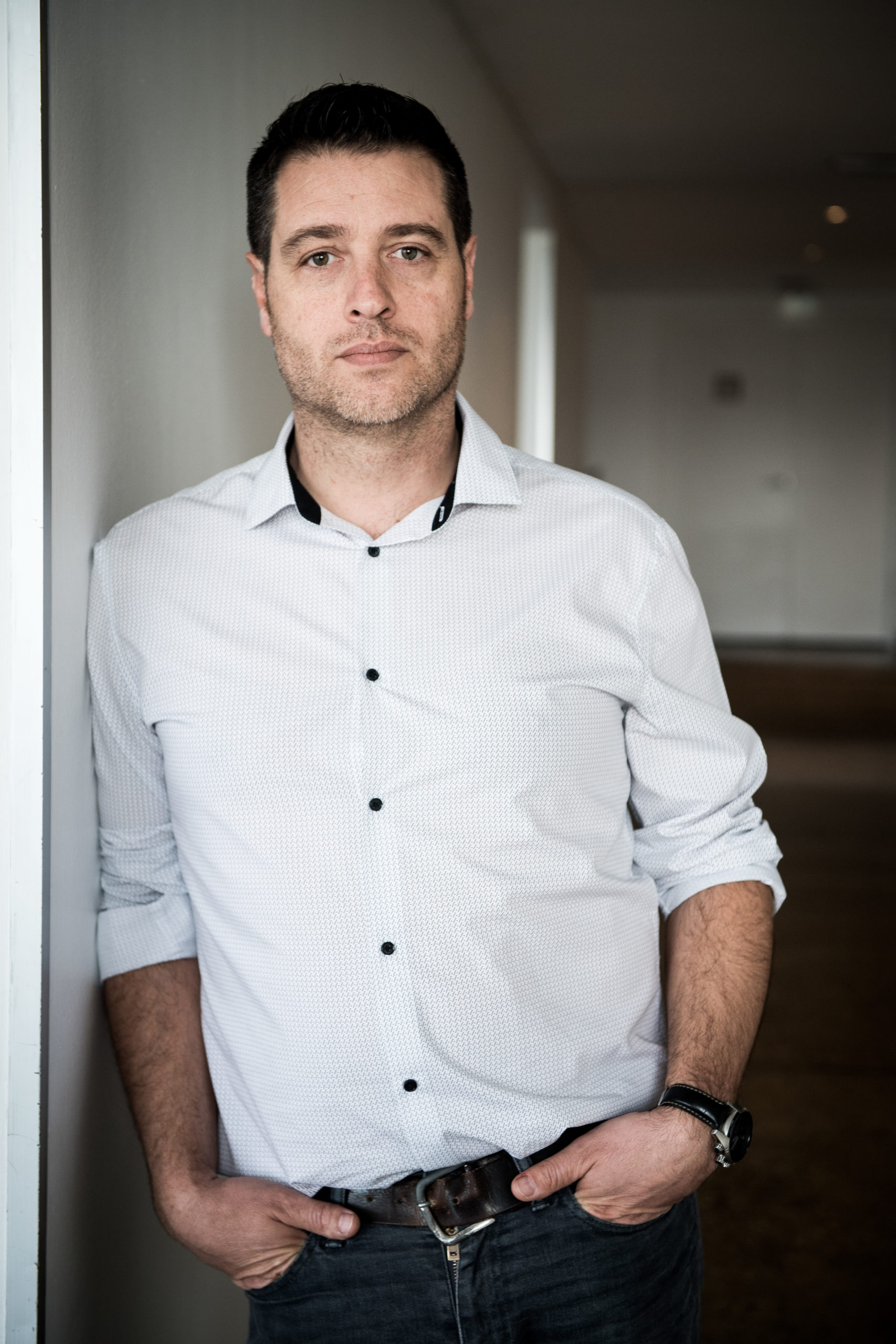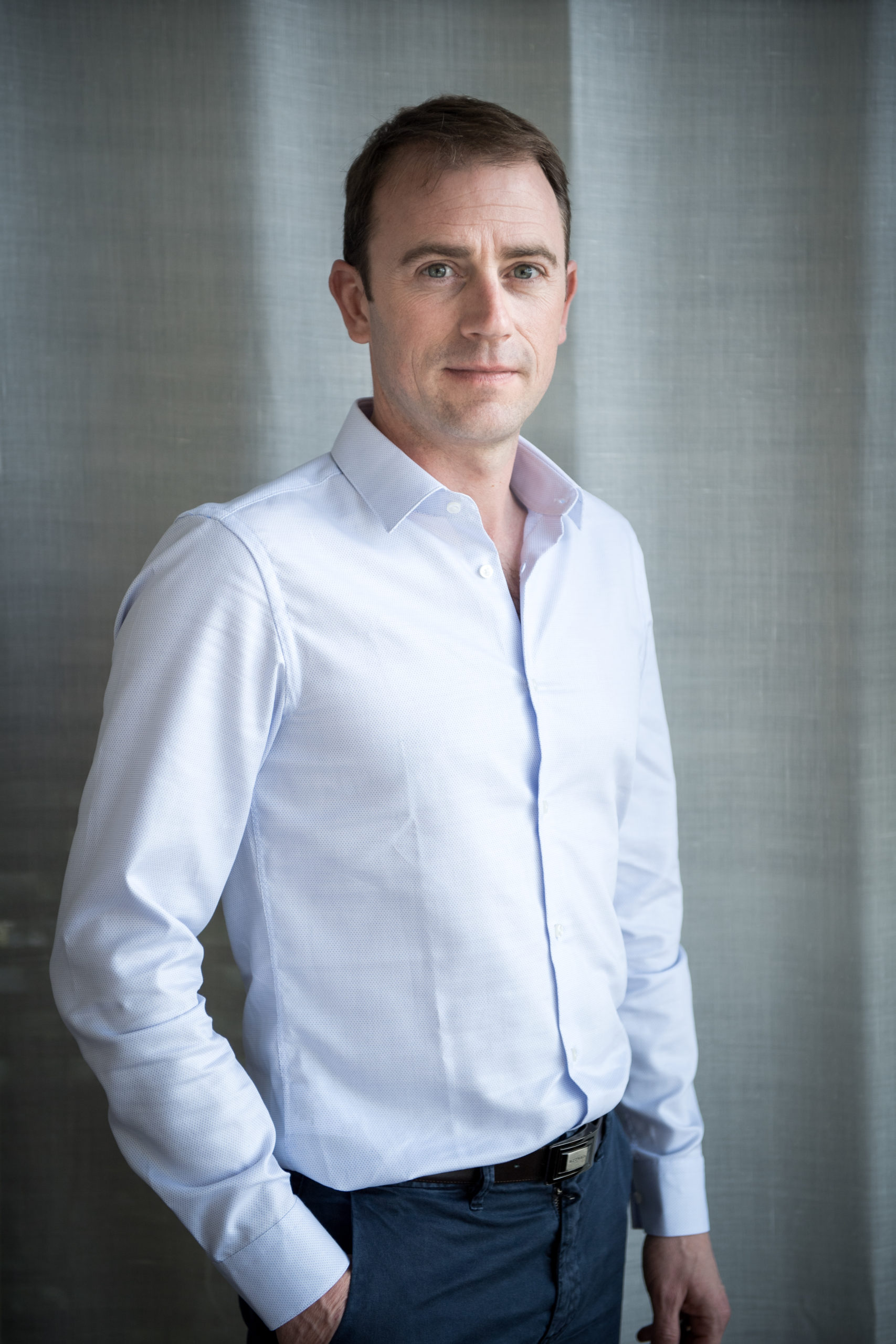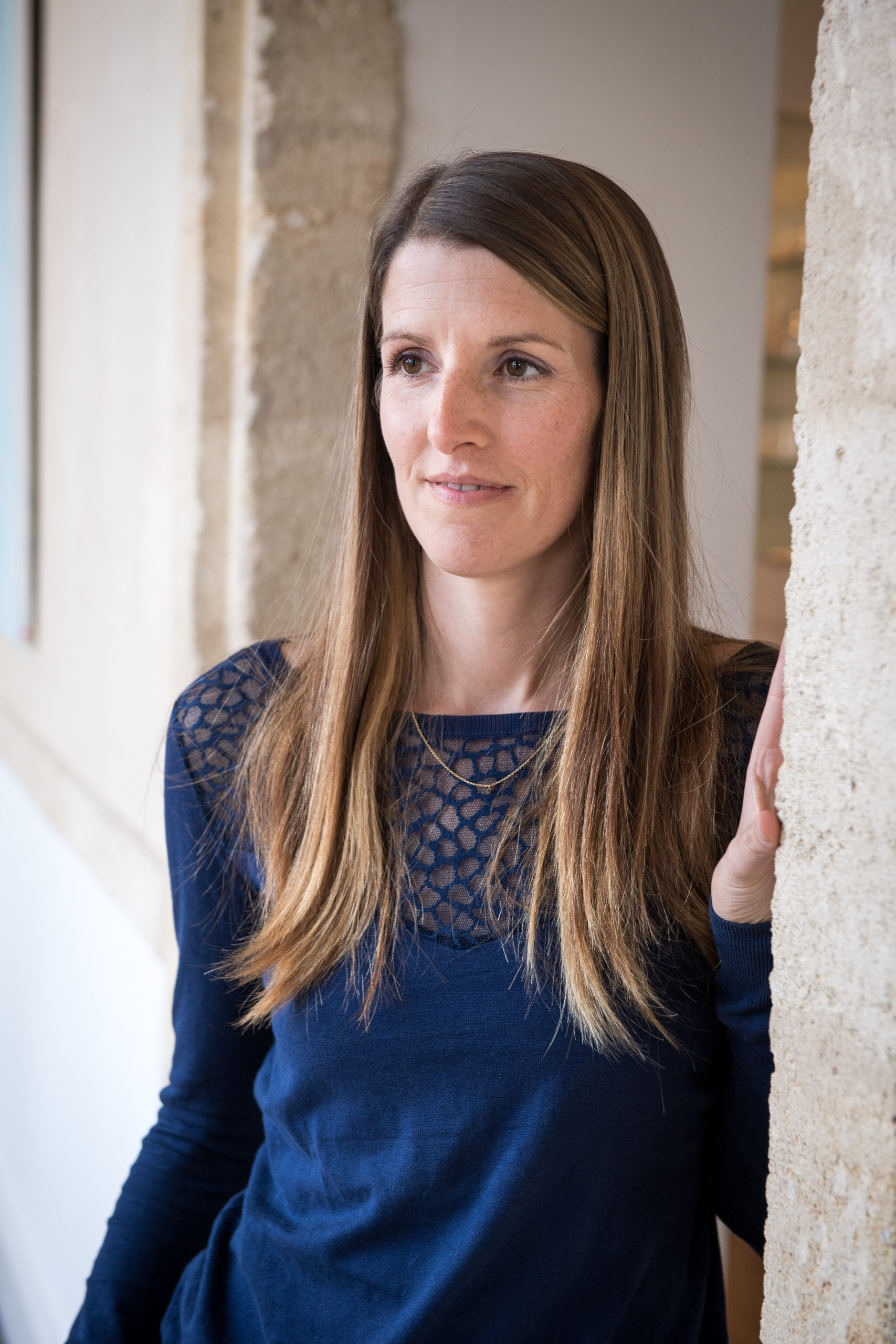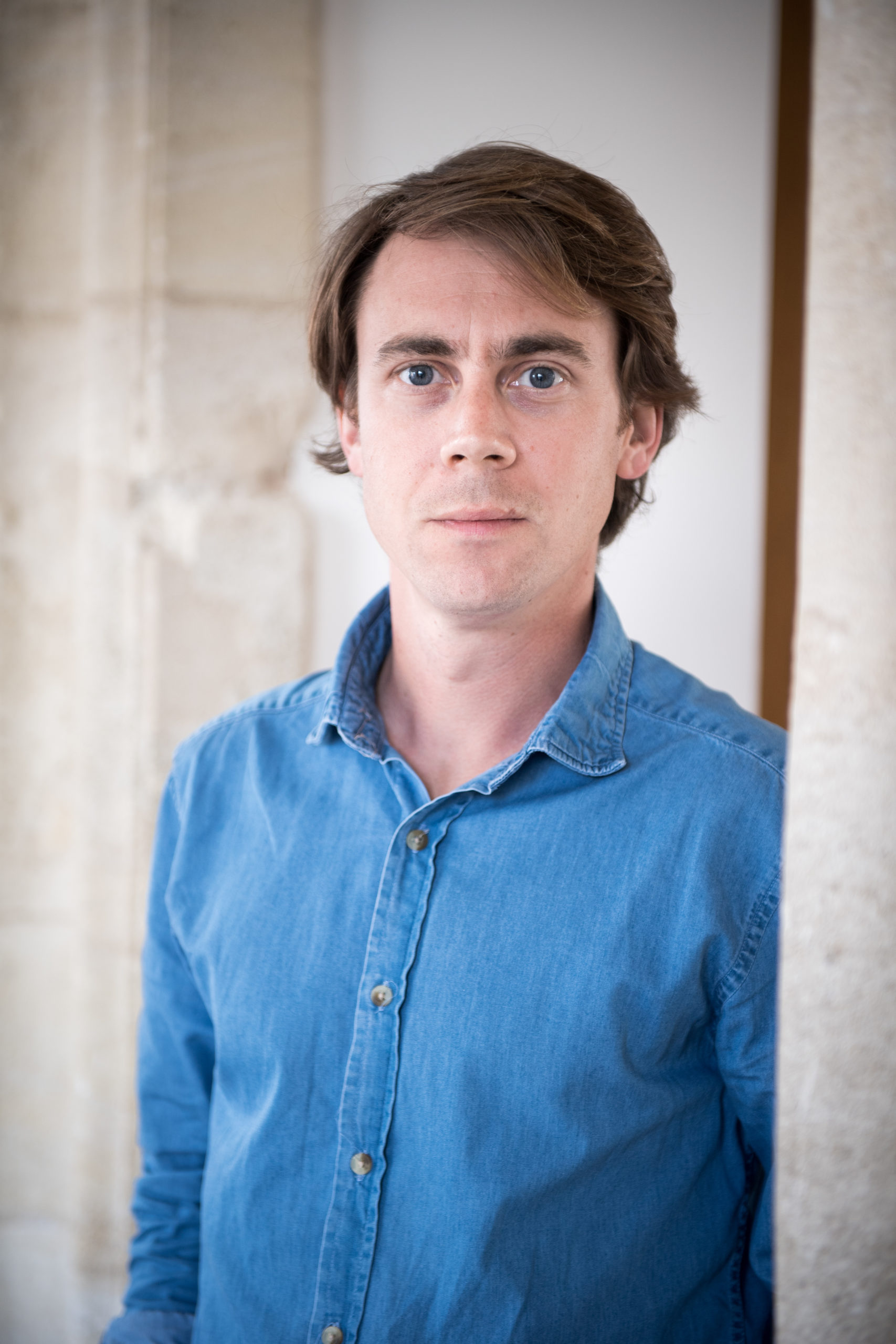PARTNERS

Frédéric Massie
For Frédéric, it is now time to move away from the set ideas of the past and exercise sensitivity in a sector usually dominated by science. Born and bred in Bordeaux and a graduate of Bordeaux University’s Faculty of OEnology, Frédéric put to one side his Bordeaux training and quite a few of his traditional Gironde winemaker convictions when he joined Derenoncourt Consultants in 2004. A lover of birds and nature in general, he is especially keen on optimising water resources in agriculture. And while continuing to underline the importance of the environment, his interest specifically focuses on the balances in an eco-system, in which vine plants should feel at home so
that they may produce wines with individual identities. He insists that a global approach is necessary and maintains that for a wine to express the place in which it is grown, its soil and its vines should be made to function well, and its eco-system must rediscover its balances.
Admittedly, he says, vine-growing is a monoculture, which works against flora and fauna’s natural balances. A global approach thus focuses on the connection between wine and soil, he explains, and offers an opportunity as much for wines themselves as for the environment. He says he has witnessed changes in the behaviour of vine plants. Frédéric, though Cartesian by nature, is especially convinced by this approach (an iconoclastic one in many aspects), since the intensity of the wines has substantially improved as a result. At Derenoncourt Consultants, this multi-disciplinary oenologist
maintains that that the winemaker is an interpreter of a terroir. After almost twenty years at the company, and inspired perhaps by his time spent in Anatolia (that other cradle of wine), this deep thinking oenologist strongly believes that our experience of the past should be our guide and that winemaking should be adapted to a region’s existing grape varieties.
Simon Blanchard
An affable guy, Simon comes from France’s Vendée region. He joined the company in 2004 at a time when the consultancy first began to grow, and since then his colleagues have observed his development and watched him shake off the shackles of the fiercest wine-growing dogma. This ebullient member of the crew refutes the idea that the company is a group of ultra-specialists.
Instead he talks of a combination of different types of know-how, a mix of personalities that complement each other very well and a constant buzz of ideas among the team. In this job, he says, you’re always questioning yourself and, with a hint of provocation, he quotes Henri Jayer, who famously claimed that you had to master the subject of oenology in order to free yourself from it.
Never one to hesitate to speak out, Simon advocates holistic vine-growing -an approach that respects ecological balances and puts human beings, places and history first.
Happily settled in his adopted Gironde, Simon believes that winemaking should ultimately focus on one aim, and that is to make wines that express the place where they are grown. We should always remember, he says, that a wine’s unique identity comes from its sub-soil. With the help of good farming practices (a primordial notion for a vigneron), the vine plant must be able to grow happily in order to express this uniqueness. The ideal balance between the vine plant and its soil must be sought, he underlines. His wish for the future is that the team can partner wine estates in an even
cleaner and more agro-ecological viticulture. New tools will arrive, he predicts, that will facilitate the making of more expressive, more individual wines. While personally abhorring over-smooth wines and preferring those with a certain astringency, he strongly advocates the production of wines that are easier to understand, suggesting perhaps that Bordeaux’s approach can be too elitist. He believes today that the Bordeaux vine-growing sector can make the environment part of its DNA and help promote a virtuous approach across the world. Simon is convinced that the Derenoncourt Consultants adventure is only just starting and will contribute to the vine-growing world of tomorrow.


Julien Lavenu
Julien has worked alongside Stéphane since 1999 and became a Derenoncourt Consultants partner in 2010. This “ultra-technician”, as his colleagues like to call him, has thus developed his career within the company. Originating from Normandy, Julien possesses a natural curiosity and sensitivity towards every vine-growing option, and this quality immediately made him “Derenoncourt Consultants compatible”! The aim of this amazing team, he says, is to improve, via multiple means and processes, the vine-growing as well as the wine quality at the estates it supports or advises. He stresses that this aim is the company’s distinguishing feature and sets it apart from other wine consultancies that only focus on the winemaking aspect. This special feature includes advice on soil maintenance, helping producers develop good viticultural practices, carrying out intra-plot analyses, and setting up adapted barrel-ageing programmes.
This quiet man of the team works tirelessly for the protection of the environment and for the people that work in it. When speaking about biodiversity, he talks of its wide diversity both in microbial terms and in individual vine plants. Julien foresees exciting challenges in the future, for which Derenoncourt Consultants he says, with its totally unique expertise, is well-prepared. He sees a creative role for the company, in which they will encourage producers to take a step back and occasionally get away from the well-worn routines. While Julien remains an accomplished technician, he is also a man of great sensitivity and even hopes in the future to inject a little spirituality into vinegrowing. His development as a fully-rounded professional, which began in 1999, is now, it would appear, complete.
Hannah Fiegenschuh
An agronomic engineer born in Coblenz, Germany, Hannah took off for Bordeaux in 2008. Having always attached great importance to the art of living and working well together, she found the perfect fit at Derenoncourt Consultants, where such things as job titles or time spent in a post are of little consequence, and where equality of treatment leads to healthy emulation.
She feels good in a team that boasts a wealth of different cultural backgrounds and savoir-faire, a group which Hannah, with her rigour, completes to perfection. Within the team, she favours an approach that integrates biodiversity and supports a natural environment that is rich in micro-organisms or animal-life, since this works against the deleterious effects of a monoculture, she says. While maintaining that organics is not the sole solution, she advocates a Derenoncourt Consultants-style eco-responsibility.
As a fan of Riesling (which we half-expected), Hannah looks for emotion and vibrancy when tasting a wine, which for her must express its soil and its environment. Hannah predicts that in the future wine consumers will turn more to products with a clear identity and will have a greater awareness of the importance of the vigneron’s craft. The key role of craftsmen and the correct interpretation by the producer of the place where the vines grow will become important issues in satisfying the expectations of future consumers, according to Hannah. Derenoncourt Consultants, she says, should continue to make their work philosophy widely known to people. They will, she predicts, thanks to their multi-facetted approach, demonstrate their ability to rise to the many wine-growing challenges
of the future.


Romain Bocchio
Having acquired his viti-vini BTS diploma, Romain, a practically self-taught person, learned the practical side of wine as an intern at Domaine de l’A, working in the vines and cellars. His was at this time on the look-out for a job that resonated with his personality and which suited his sensitive, aesthetic approach to work. He found exactly that when he joined Derenoncourt Consultants in 2010. He says he discovered bio-dynamics on his arrival there, and that this method enabled him to ask himself the right kind of questions. Bio-dynamic farming, he believes, very often brings out great quality and produces wines with a clear, individual identity. These wines possess a harmony, he adds, and are underpinned by a whole range of natural balances. When discussing the wines of the future, he believes that Derenoncourt Consultants should highlight the importance of eco-systems as a means of bringing terroirs into focus. This will lead to superior quality wines with greater vibrancy.
Derenoncourt Consultants will always pride itself on its management and global approach, says this passionate young wine professional, and in so doing will enhance the understanding of the relationship between soils and viticulture.
Romain sees Derenoncourt Consultants rising to the future challenges of a two-speed viticulture that will require great expertise. It will demand knowledge of the mechanisms that enable the production of great wines, and a multidisciplinary viticulture will emerge from it. Romain often says that vines are the plants that are most conducive to expressing the earth’s essence, opening up a whole new world for the enjoyment of wine tasters, fine-diners, fans of food culture and la bella vita -a world
which he is more than content to be part of.